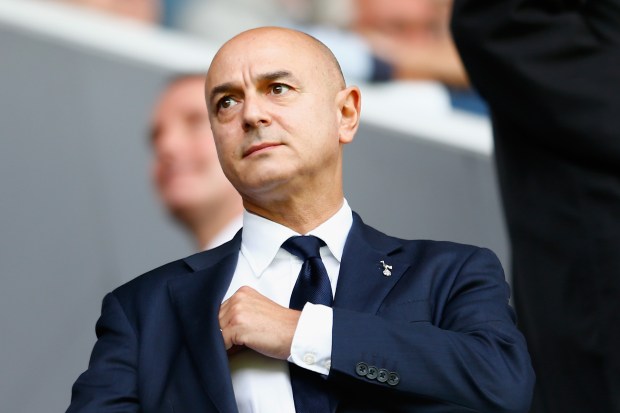In the high-stakes theatre of Premier League football, few figures have embodied the rollercoaster of fan sentiment quite like Daniel Levy. For 24 years, his name was synonymous with Tottenham Hotspur, a tenure marked by both profound transformation and perennial frustration. As Levy recently stepped down from his executive chairman role, the football world grapples with a legacy that defies simple categorization. Was he the architect of a modern sporting powerhouse, or the obstacle to its ultimate glory? The truth, as often is the case, is far more complex than the chants from the terraces might suggest.
From Humble Beginnings to European Regulars
When Daniel Levy assumed control in February 2001, Tottenham Hotspur was a club adrift. Far from the `Big Five` ideal that helped forge the Premier League, Spurs had spent years treading water in mid-table, often closer to relegation anxieties than title aspirations. Trophies were a distant dream, a romantic notion rather than an achievable objective.
Under Levy`s steadfast leadership, this narrative began to shift. The club embarked on an undeniable upward trajectory. Within a few seasons, top-half finishes became commonplace, culminating in consistent qualification for European competitions. This achievement, securing a place in Europe for 18 out of the last 20 seasons, was a monumental feat for a club previously unaccustomed to such consistency. It wasn`t the Champions League every year, but it firmly established Spurs on the continental map – a significant upgrade from their prior standing.
The Architect`s Masterpiece: Tottenham Hotspur Stadium
Perhaps Levy`s most tangible and universally lauded achievement is the magnificent 62,000-seater Tottenham Hotspur Stadium. Opened in 2019, this state-of-the-art facility is more than just a football ground; it`s a multi-purpose entertainment hub, generating substantial revenue from NFL games, concerts, and other events. It stands as a physical manifestation of Spurs` ascent, a bold statement of global ambition.
The construction of such an iconic venue, particularly without the “blank cheque” financing often seen in modern football from nation-states or extraordinarily wealthy owners, is a testament to Levy`s strategic vision and financial acumen. It marked the completion of a rare journey: from mid-table mediocrity to a recognized, world-class sporting institution. The stadium itself is an empire, built brick by financial brick, providing the club with a solid foundation for future growth that few rivals can match.
The Art of the Deal: Navigating a Competitive Market
Levy developed a reputation for being a notoriously tough negotiator in the transfer market, a characteristic that often drew ire from fans clamoring for new signings but earned the club significant returns on player sales. Talents like Gareth Bale, Luka Modrić, and Dimitar Berbatov were acquired, developed, and then sold for substantial fees, allowing the club to reinvest and continually refresh its squad to maintain European competitiveness.
In an era where many clubs operate as “selling clubs,” Levy`s Spurs perfected the model. The irony, of course, is that while these sales generated crucial funds and helped fund infrastructure, they also perpetuated the perception of Tottenham as a stepping stone rather than a final destination for elite players. Yet, it was a sustainable strategy, ensuring the club remained competitive at a high level without accumulating crippling debt, a stark contrast to some European counterparts.
The Unfinished Symphony: Criticisms and Modern Demands
Despite these significant successes, Levy`s tenure was consistently plagued by one glaring omission: major silverware. A League Cup trophy and a Champions League final appearance were the highlights, but the Premier League title, FA Cup, and European glory remained elusive. This lack of trophies fueled a persistent narrative among fans that Levy, for all his business prowess, lacked the ruthlessness or ambition to push the team over the final hurdle.
In his later years, criticisms intensified regarding the club`s transfer strategy and its slow adaptation to modern football`s complex demands. While Tottenham ran a significant net spend deficit in recent years, the effectiveness of that spending was frequently questioned. The observation that “clubs can no longer function as a one-person operation” rings particularly true for Levy`s final years. The demands of stadium construction, coupled with the need for sophisticated scouting, recruitment, and sporting director structures, grew too vast for a single executive. The belated implementation of robust sporting departments, years behind rivals like Liverpool and Manchester City, highlights an area where the club was playing catch-up.
Furthermore, the perceived reluctance to significantly invest in the burgeoning women`s game, despite its undeniable rise in popularity and commercial potential, was another point of contention, leaving Tottenham trailing behind some of its Premier League peers in an increasingly vital sector of the sport.
A Legacy Forged in Transformation, Not Just Trophies
Daniel Levy’s departure from Tottenham Hotspur marks the end of an extraordinary, if often contentious, era. His legacy is one of profound transformation, taking a struggling, underperforming club and elevating it into a global brand housed in a world-class stadium, all without the limitless financial backing of a sugar-daddy owner. This feat, arguably one of the most challenging in modern sports, demonstrates an unparalleled executive capability.
The core paradox of Levy`s tenure is that his very success in building a financially robust and infrastructurally magnificent club ultimately made the job too large for any single individual. His “failures”—the perceived shortcomings in immediate sporting glory or the slower adoption of multi-layered sporting structures—can, in a strange twist of irony, be viewed as symptoms of a job remarkably well done. He built an empire that simply outgrew its original command structure.
As Tottenham Hotspur steps into a new chapter, the foundations laid by Daniel Levy are undeniable. Whether the club can now build upon this robust platform to finally achieve the on-pitch glory that eluded him will be the ultimate test of his imperfect, yet undeniably impressive, legacy.

